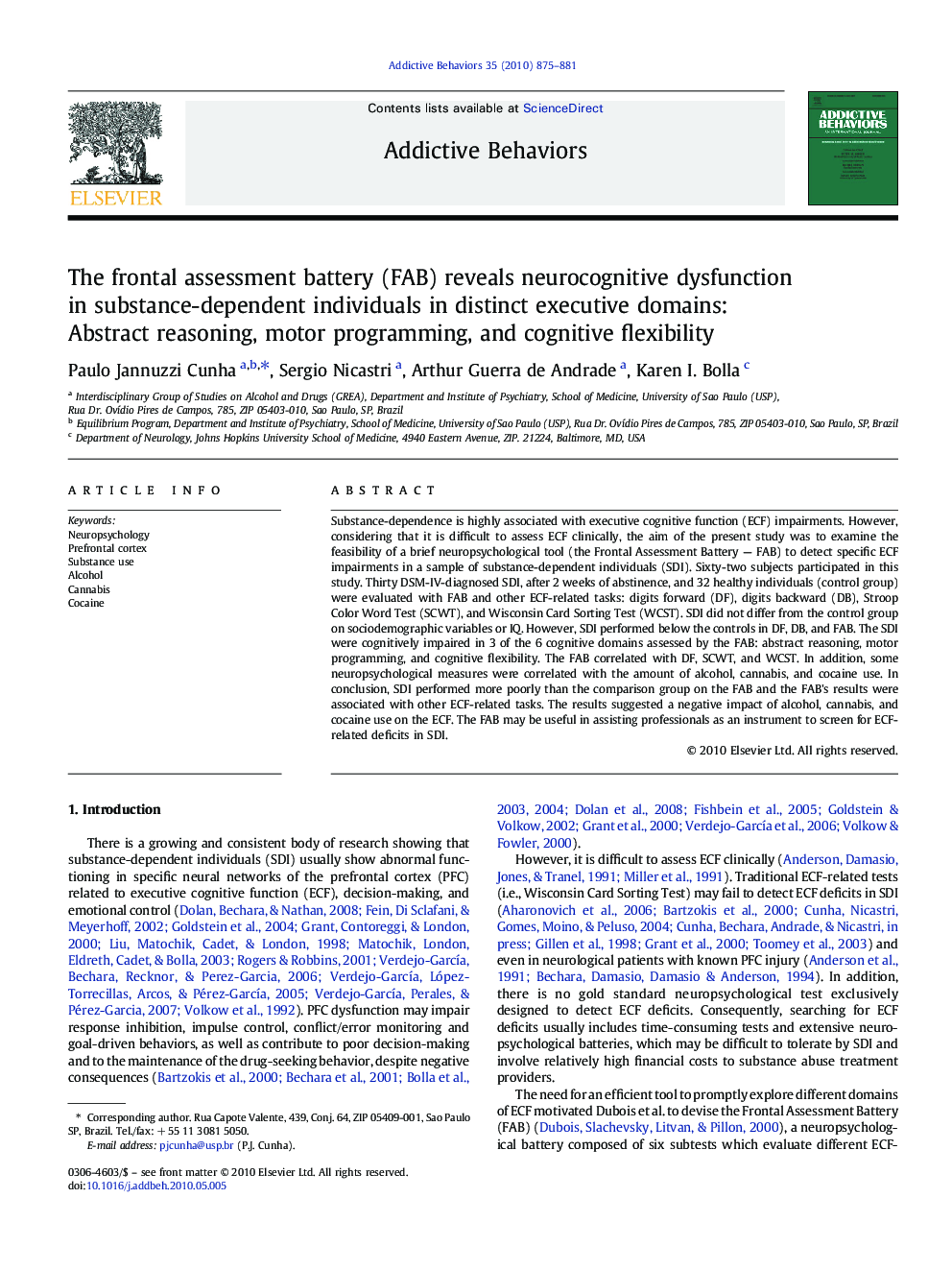| کد مقاله | کد نشریه | سال انتشار | مقاله انگلیسی | نسخه تمام متن |
|---|---|---|---|---|
| 899738 | 915398 | 2010 | 7 صفحه PDF | دانلود رایگان |

Substance-dependence is highly associated with executive cognitive function (ECF) impairments. However, considering that it is difficult to assess ECF clinically, the aim of the present study was to examine the feasibility of a brief neuropsychological tool (the Frontal Assessment Battery — FAB) to detect specific ECF impairments in a sample of substance-dependent individuals (SDI). Sixty-two subjects participated in this study. Thirty DSM-IV-diagnosed SDI, after 2 weeks of abstinence, and 32 healthy individuals (control group) were evaluated with FAB and other ECF-related tasks: digits forward (DF), digits backward (DB), Stroop Color Word Test (SCWT), and Wisconsin Card Sorting Test (WCST). SDI did not differ from the control group on sociodemographic variables or IQ. However, SDI performed below the controls in DF, DB, and FAB. The SDI were cognitively impaired in 3 of the 6 cognitive domains assessed by the FAB: abstract reasoning, motor programming, and cognitive flexibility. The FAB correlated with DF, SCWT, and WCST. In addition, some neuropsychological measures were correlated with the amount of alcohol, cannabis, and cocaine use. In conclusion, SDI performed more poorly than the comparison group on the FAB and the FAB's results were associated with other ECF-related tasks. The results suggested a negative impact of alcohol, cannabis, and cocaine use on the ECF. The FAB may be useful in assisting professionals as an instrument to screen for ECF-related deficits in SDI.
Journal: Addictive Behaviors - Volume 35, Issue 10, October 2010, Pages 875–881